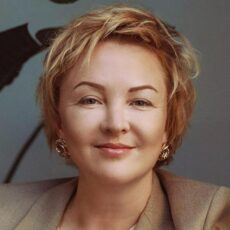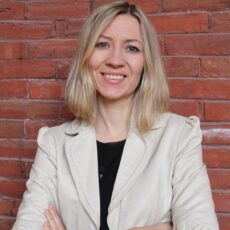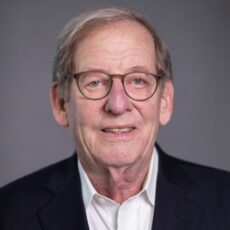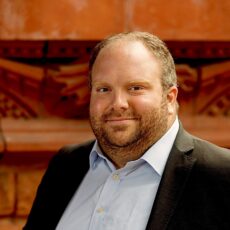Watch the recording.
The Transatlantic Energy Landscape—One Year After Russia’s Invasion
Event Summary
Since Russia’s large-scale invasion of Ukraine commenced in February 2022, the Kremlin’s long-term strategy of weaponizing energy resource and infrastructure dependence against western democratic norms has reached its apex. The Russian Federation under Vladimir Putin has notoriously used energy as a political weapon aimed at extracting geopolitical concessions from democracies across the European continent through real and threatened natural gas cutoffs for year. The Kremlin intentionally created a natural gas crisis in the year running up to its reinvasion of Ukraine to undermine EU foreign policy latitude. Over the past year, it has conducted more dramatic wartime energy weaponization, including major gas cutoffs across the European Union, and maritime activities near European offshore energy infrastructure that raised Transatlantic security concerns. Most distressing of all, for the past six months, the Russian military has conducted kinetic missile, rocket, and drone strikes against Ukrainian civil energy infrastructure aimed at exacerbating the wartime humanitarian crisis for Ukrainian civilians this winter.
This set of two panels looks at Russia’s current strategy of wartime energy weaponization through the lens of its long-term trend of using energy as a weapon against Europe. Both discussions explore new futures, with global powers countering Russian malign energy actions and influence.
Panel One: The End of the Russian Energy Era in Europe: What’s Next for Moscow
MODERATOR:
Dr. Anna Mikulska, Department of Russian and Eastern European Studies, University of Pennsylvania
SPEAKERS:
Ambassador John Herbst, Senior Director, Atlantic Council’s Eurasia Center
Vladimir Milov, Vice President for International Advocacy, Free Russia Foundation
Dr. Tatiana Mitrova, Research Fellow, Center for Global Energy Policy, Columbia University, New York, NY
Professor Alan Riley, Non-Resident Senior Fellow, Atlantic Council, Brussels, Belgium
PANEL 2: Countering Russian Energy Weaponization from Lisbon to Kyiv: Sanctions, Export Controls, Physical Infrastructure Protection
MODERATOR:
Dr. Benjamin L. Schmitt, Kleinman Center for Energy Policy, University of Pennsylvania
SPEAKERS:
Paul Massaro, Senior Advisor for Sanctions and Counter-Corruption, U.S. Commission on Security and Cooperation in Europe
Ambassador Richard Morningstar, Founding Chairman, Atlantic Council, Global Energy Center, Washington, D.C.
Olena Pavlenko, President, DiXi Group Energy Think Tank, Kyiv, Ukraine
Nataliia Shapoval, Vice President for Policy Research, Kyiv School of Economics, Kyiv, Ukraine
This event is part of Energy Week at Penn. Check out the rest of the 2023 programming at energyweek.upenn.edu.
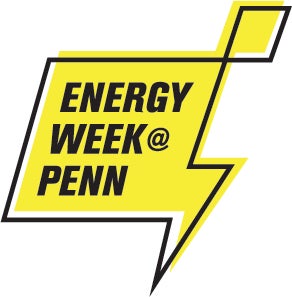
Panel One
The End of the Russian Energy Era in Europe: What’s Next for Moscow
Ambassador John Herbst
Senior Director, Atlantic Council’s Eurasia CenterAmbassador John E. Herbst is senior director of the Atlantic Council’s Eurasia Center and served for thirty-one years as a foreign service officer in the US Department of State, retiring at the rank of career minister. He was US ambassador to Ukraine from 2003 to 2006.
Vladimir Milov
Vice President for International Advocacy, Free Russia FoundationVladimir Milov is a Russian opposition politician, publicist, economist & energy expert. Former Deputy Minister of Energy of Russia (2002), adviser to the Minister of Energy (2001-2002), and head of strategy department at the Federal Energy Commission, the natural monopoly regulator (1999-2001).
Tatiana Mitrova
Research Fellow, Center for Global Energy Policy, Columbia UniversityTatiana Mitrova is a Research Fellow at the Center on Global Energy Policy. She has twenty five years of experience in dealing with Russian, FSU and global energy markets, including production, transportation, demand, energy policy, pricing and market restructuring.
Alan Riley
Non-Resident Senior Fellow, Atlantic CouncilAlan Riley is a nonresident senior fellow with the Atlantic Council Global Energy Center. He is also a professor at City Law School.
Anna Mikulska
Senior FellowAnna Mikulska is an expert on European energy markets and energy policy. She is a senior fellow at the Kleinman Center and a fellow in energy studies at Rice University’s Baker Institute for Public Policy.
Panel Two
Countering Russian Energy Weaponization from Lisbon to Kyiv: Sanctions, Export Controls, Physical Infrastructure Protection
Paul Massaro
Senior Advisor for Sanctions and Counter-Corruption, U.S. Commission on Security and Cooperation in EuropePaul Massaro is the senior policy advisor for counter-corruption and sanctions. Paul’s work has advanced the recognition of corruption as a national security threat. He has been described in the media as “one of America’s foremost corruption experts” and an “endless source of democratic ingenuity.”
Ambassador Richard Morningstar
Founding Chairman, Atlantic Council, Global Energy CenterRichard L. Morningstar is the founding chairman of the Global Energy Center and a board director at the Atlantic Council. He served as the US ambassador to the Republic of Azerbaijan from July 2012 to August 2014.
Olena Pavlenko
President, DiXi Group Energy Think TankOlena Pavlenko is Chair of the PWYP Global Council and President of the DiXi Group, a Kyiv-based think-tank specialising in research and consultations in the energy sphere.
Nataliia Shapoval
Vice President for Policy Research, Kyiv School of EconomicsNataliia Shapoval is Vice President for Policy Research at Kyiv School of Economics & Head of KSE Institute. Natalia has ten years experience in policy research and consulting projects in public procurement, the healthcare and pharmaceutical industry, and strategic development of the private sector.
Benjamin Schmitt
Senior Fellow, Kleinman Center and SASBenjamin Schmitt is a joint senior fellow at the Kleinman Center and the Department of Physics and Astronomy at Penn. He is also an affiliate of the Harvard-Smithsonian Center for Astrophysics and associate of the Harvard-Ukrainian Research Institute.


